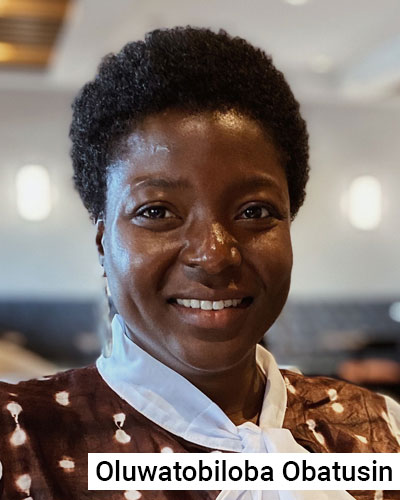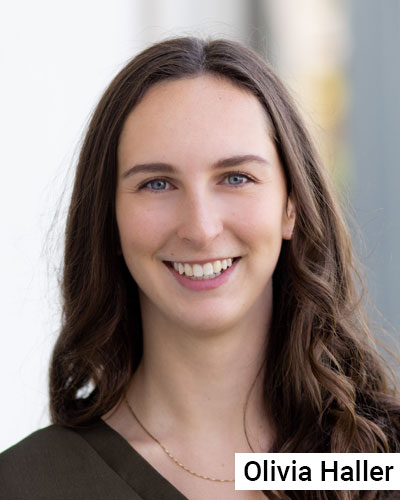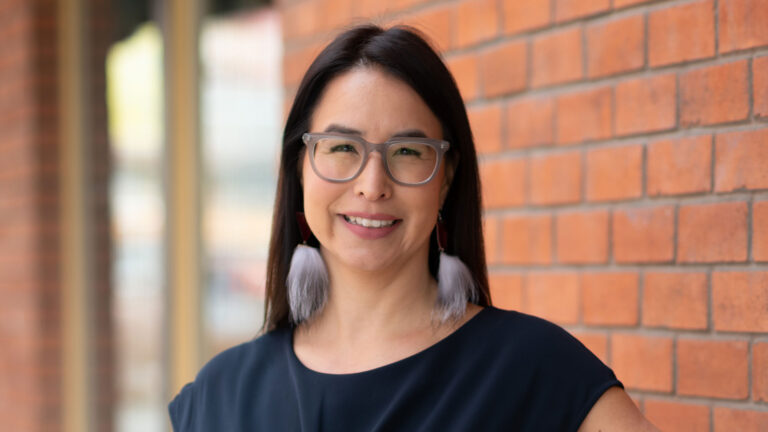
The precepting experience is a formative step for pharmacy technicians and pharmacists. For many, this is their first experience in practice. Their experiences as students and provisional registrants shape an understanding of what it means to be part of a pharmacy team, how to work effectively within the overall healthcare system, and how to provide meaningful person-centred care.
Just as students and provisional registrants have a great deal to learn from experienced preceptors, we can learn from those who are new to the field as they reflect on their experiences.
 Oluwatobiloba (Tobi) Obatusin, winner of ACP’s 2022 Leadership Development Award, graduated from the University of Alberta’s (U of A) Faculty of Pharmacy and Pharmaceutical Sciences in 2022 and has already demonstrated an aptitude for leadership and a passion for pharmacy. As a student, she founded the Black Pharmacy Students’ Association at the U of A. As she starts her career as a pharmacist, she remains committed to using her voice to advocate for racialized peers and patients and continuing to build equity in pharmacy care. Having recently completed her structured practical training (SPT), Tobi was able to share insights from her experiences as a preceptee, reflecting on the importance of the precepting process.
Oluwatobiloba (Tobi) Obatusin, winner of ACP’s 2022 Leadership Development Award, graduated from the University of Alberta’s (U of A) Faculty of Pharmacy and Pharmaceutical Sciences in 2022 and has already demonstrated an aptitude for leadership and a passion for pharmacy. As a student, she founded the Black Pharmacy Students’ Association at the U of A. As she starts her career as a pharmacist, she remains committed to using her voice to advocate for racialized peers and patients and continuing to build equity in pharmacy care. Having recently completed her structured practical training (SPT), Tobi was able to share insights from her experiences as a preceptee, reflecting on the importance of the precepting process.
“The SPT came full circle for me as I could bring all the knowledge I acquired during my education and apply it to real-life situations and people,” said Tobi.
Olivia Haller, recipient of ACP’s 2022 Pharmacy Technician Achievement Award, recently graduated from Robertson College’s Pharmacy Technician program. Olivia marked her entry to the profession by achieving the highest marks in Alberta on the Pharmacy Examining Board of Canada’s Qualifying Exam. She is a self-proclaimed lifelong learner and wants to see her profession continue to evolve as well. Olivia valued the opportunity to get hands-on experience through SPT.
“Getting the chance to be hands on was so important,” said Olivia. “It’s one thing to watch someone else perform the task; it brings learning to a new level when there are opportunities to learn to be competent through practice.”
Tobi and Olivia both appreciate the valuable lessons from their precepting opportunities. As they reflected on their respective experiences, they both identified opportunities for the precepting practice to continue to evolve.
“If I were to have any advice for preceptors, it would be to foster an environment of respect,” said Olivia. “Encouraging students and honouring their differences is so important.”
Tobi seconded this advice. “It is imperative to have a workplace culture of respect,” she said. Tobi, reflecting on her own negative experiences related to workplace culture. “I had some racist experiences during my clinical rotations, which negatively impacted my mental health.”
Tobi shared some suggestions on how to foster a respectful workplace environment, highlighting that demonstrating respect can start with something as fundamental as respecting each person’s identity.
“For many cultures, a person’s name carries meaning, and their identity is tied to that name. Part of being respectful is correctly pronouncing names,” said Tobi. “Take the time to learn, apologize if you mispronounce it, and keep trying to say it until you get it right. Respecting pronouns is another key component of building respect.”
A proactive approach involving the entire pharmacy team sets the foundation to create a safe and respectful space. “Have open conversations with your team and discuss how to disrupt racist or discriminatory incidents from patients, coworkers, or even yourself,” said Tobi. “We all have a role to play in disrupting discrimination.”
Ensuring policies and procedures reflect the expectations of a respectful workplace is also key. “Be familiar with your workplace policy regarding discrimination, racism, and harassment,” said Tobi. “Include this information as part of precepting orientation.”
A respectful environment can also be fostered through continual personal growth and learning. “Enroll in training focused on implicit bias, cultural humility, and safety, and implement your learnings into your practice and daily lives,” said Tobi.
Beyond establishing a respectful and safe environment, both Olivia and Tobi reflected on the importance of meaningful engagement with students and provisional registrants. The precepting process can be overwhelming; adjusting from the classroom to real practice, while exciting, can also be stressful. Establishing meaningful connections builds trust between preceptors and their preceptees to facilitate a positive and rewarding experience.
 “I was fortunate to work with great people through both of my SPTs,” said Olivia, “But I think one encouragement I would have would be to incorporate more one-on-one feedback to really connect on what is working and to identify opportunities to improve and grow as a professional.”
“I was fortunate to work with great people through both of my SPTs,” said Olivia, “But I think one encouragement I would have would be to incorporate more one-on-one feedback to really connect on what is working and to identify opportunities to improve and grow as a professional.”
Olivia explains that moving beyond the how and addressing the why is also essential.
“Going beyond simply showing your student what to do or how to do something and explaining why we’re doing it is so important,” said Olivia. “I think it creates valuable opportunities to encourage critical thinking and it helps students appreciate the importance of each step and task as a part of providing excellent care.”
Meaningful engagement also includes remembering that each preceptee brings different skills and experiences.
“Students have diverse needs,” said Tobi. “We cannot use a ‘one size fits all’ approach; preceptors should identify the needs of each student and try to be accommodating and supportive.”
Right from the beginning, preceptors can build connections with students or provisional registrants by finding out what they hope and expect to gain from the precepting experience. With this understanding, preceptors can provide guidance and instruction where it is most meaningful to help achieve goals and build skills.
While preceptees are helpful additions to the pharmacy team, it is important to remember that learning and practice are the key objectives.
“Students should be part of the pharmacy workflow, as this is key to their training,” said Tobi. “However, there is a fine line between training students and using them as free labour.”
Defining clear objectives and maintaining open communication with students and provisional registrants is important to ensure there is an effective balance between preceptees contributing to the team and giving them the opportunities and support to achieve learning objectives.
As students and provisional registrants gain experience to enter their profession, they need to focus on applying the knowledge and skills needed to exemplify professionalism and provide effective, meaningful, patient-centred care. By fostering an environment that is safe, inclusive, respectful, engaging, and focused on key learnings, preceptors are empowering preceptees to succeed as new professionals. Fostering a positive workplace will not only help students and provisional registrants; it will benefit the entire pharmacy team.
Today’s preceptees are tomorrow’s practitioners. Creating inclusive and supportive learning environments is the cornerstone to producing confident and qualified future professionals with the skills and knowledge to uphold excellence in pharmacy practice.




